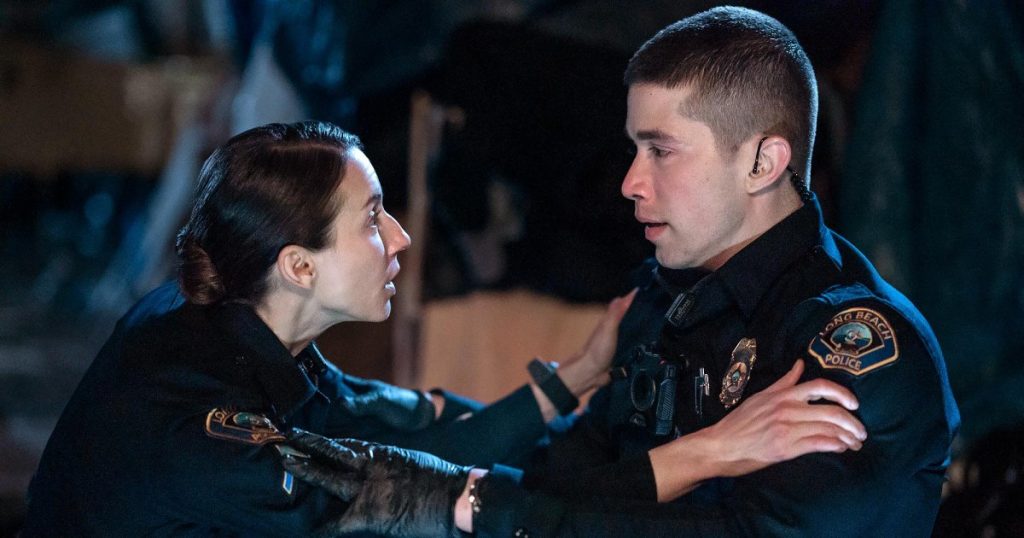Dick Wolf’s “On Call,” a police procedural drama centered on the Long Beach Police Department, distinguishes itself through a deliberate avoidance of overt commentary on the complexities of law enforcement. The show’s creators, including executive producer Elliot Wolf, envisioned a “buffet” where diverse audiences with varying perspectives on policing could engage with the narrative without feeling alienated. This approach is a departure from traditional procedurals that often present a simplified, often heroic, portrayal of law enforcement. “On Call” instead aims to depict the human side of police work, showcasing the officers’ flaws, vulnerabilities, and the difficult decisions they face daily. The series seeks to foster understanding and spark conversation by presenting a nuanced portrayal of individuals navigating the challenging realities of their profession.
This commitment to neutrality is reflected in the actors’ perspectives on the show’s core message. Troian Bellisario, who plays Officer Traci Harmon, emphasized the desire to avoid a singular message and instead allow viewers to draw their own conclusions. Brandon Larracuente, portraying Officer Alex Diaz, echoed this sentiment, highlighting the show’s intent to present questions rather than definitive answers. This ambiguity encourages audience engagement and promotes critical thinking about the multifaceted nature of policing. The actors believe that by showcasing the human element behind the badge, viewers can connect with the characters on a deeper level, regardless of their preconceived notions about law enforcement. The show doesn’t shy away from portraying mistakes and challenges, reinforcing the idea that police officers are, first and foremost, human beings.
Lori Loughlin, a veteran actress in the series, expressed her support for “On Call’s” intentional avoidance of commentary. She sees this approach as a refreshing alternative to the often-polarized narratives surrounding law enforcement. Eriq La Salle, who plays Sergeant Lasman and also directed episodes of the show, found this aspect particularly appealing. He emphasized the importance of presenting credible characters and situations, drawing from the cast’s firsthand experiences riding along with actual Long Beach police officers. This immersive research allowed the actors and crew to gain a deeper understanding of the daily lives and challenges faced by those in law enforcement, informing their portrayals and contributing to the show’s authenticity.
The show’s commitment to realism extends beyond its narrative approach. “On Call” utilizes a unique visual style, incorporating bodycam footage, dashcam recordings, and cellphone videos to create an immersive and immediate viewing experience. This technique blurs the lines between fiction and reality, placing the audience directly into the heart of the action alongside the officers. La Salle explained that this stylistic choice was a deliberate attempt to bring viewers into the cruisers and onto the calls, allowing them to witness the unfolding events firsthand without the filter of traditional narrative techniques. This immersive perspective encourages greater empathy and understanding of the complex situations faced by police officers.
Furthermore, “On Call” distinguishes itself by focusing on the Long Beach community, offering a fresh perspective within the well-established police procedural genre. Bellisario highlighted the show’s departure from the traditional case-of-the-week format, opting instead for an overarching storyline that develops throughout the season. This serialized approach allows for a deeper exploration of the characters’ relationships, their personal struggles, and the evolving dynamics within the police force. By focusing on the human drama and interpersonal relationships, “On Call” transcends the typical procedural formula and offers a more nuanced and engaging viewing experience. This focus on character development and long-term narratives caters to the evolving preferences of younger audiences who are increasingly drawn to character-driven stories.
In essence, “On Call” seeks to redefine the police procedural by prioritizing character development, realistic portrayals of police work, and an immersive viewing experience. The show’s deliberate avoidance of commentary allows for a more nuanced exploration of the complexities of law enforcement, encouraging viewers to engage with the characters and their experiences on a deeper level. By presenting the human side of policing, “On Call” aims to foster understanding and spark meaningful conversations about the challenges and realities faced by those who serve in law enforcement. This fresh approach to the genre positions “On Call” as a unique and thought-provoking addition to the landscape of police procedurals, offering a perspective that resonates with modern audiences and challenges conventional portrayals of law enforcement.










